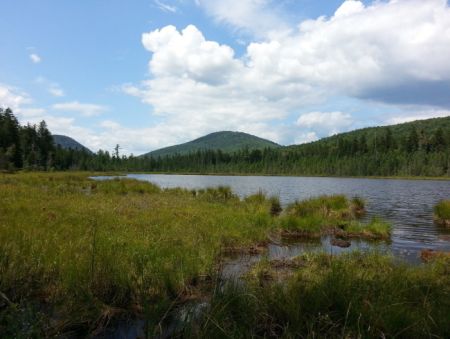Montpelier – The Agency of Natural Resources is starting a process to provide special protections for four unique Vermont wetlands by designating them Class I. The four wetlands vary in size, region, and function, but all have been determined to be irreplaceable or exceptional in their contribution to Vermont’s natural heritage.
The Agency has reviewed over 20 wetlands with potential for Class I status and is focusing on the following four: Black Gum Swamps in Vernon, Dennis Pond Wetlands in Brunswick, Chickering Fen in Calais, and Sandbar Wetlands in Milton and Colchester. Three wetlands are currently designated as Class I, with the most recent being designated over ten years ago.
“Class I designation has historically been an underutilized tool for managing the State’s highest value wetlands. In this effort, we are putting a spotlight on these special wetlands to conserve them, and emphasize the importance of their remarkable natural features and functions,” said Agency Secretary Deb Markowitz.

The Black Gum Swamps in Vernon are seven distinct areas of Red Maple-Black Gum Swamp communities, a rare natural community found at the northern edge of the normal range for this type of wetland. These pocket swamps contain some black gum trees aged at over 400 years. Members of the Town of Vernon have been in active support of the proposal.
The 370-acre Dennis Pond wetland complex includes two relatively small open water areas, Mud Pond and Dennis Pond, and about 140 acres of peatland. The diverse habitat is exceptional for wildlife and host a number of rare and threatened species and natural community types. Much of this wetland is part of the West Mountain Wildlife Management Area.
Chickering Fen, locally known as “Chickering Bog,” is a 10-acre Fen wetland, a size that is large and rare in Vermont. The wetland provides a home for rare and threatened species, and is exceptional in its value for education and research in the natural sciences. The owners of this wetland, The Nature Conservancy, is in support of the designation.
The Sandbar Wetland is a 1,359-acre wetland delta complex composed of special natural communities that span along the shores of Lake Champlain and the Lamoille River, and is home to many rare wildlife and plant species. This wetland provides a large area for flood waters to be stored where sediments and nutrients are used by wetland vegetation rather than heading straight into Lake Champlain. The dense vegetation prevents erosion along the lake and river, and provides spawning habitat for fish such as Northern Pike.
In order to designate a new wetland as Class I, the Vermont Wetland Rules need to be amended. Proposed changes to the rule are currently posted on the Secretary of State’s website, and are on public notice until November 2nd. Three public meetings will be held in proximity to the four proposed Class I wetlands.
To learn more about Class I designations and how your town may help protect these vital resources, visit the Vermont Wetlands Program website at http://dec.vermont.gov/watershed/wetlands.
# # #
